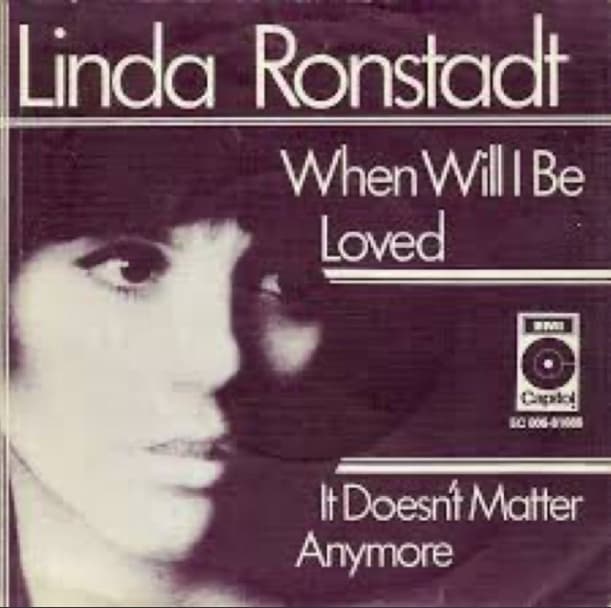
Linda Ronstadt’s “It Doesn’t Matter Anymore”: A Melancholy Echo of Enduring Love and Loss
There are some songs that, no matter how many years pass, seem to find their way back into our hearts, each listen unearthing new layers of meaning and memory. Linda Ronstadt’s rendition of “It Doesn’t Matter Anymore” is undeniably one such gem. Released in 1974 on her monumental album, Heart Like a Wheel, this track wasn’t just another album cut; it was a testament to her unparalleled interpretive genius. While the original, written by a then-teenaged Paul Anka and immortalized by Buddy Holly just before his tragic passing in 1959, carried a bright, almost defiant pop sensibility, Ronstadt transformed it into something profoundly different.
For those of us who remember the era, Heart Like a Wheel was a revelation. The album itself soared to number one on both the Pop and Country Billboard album charts, remaining a fixture for 51 consecutive weeks. As for “It Doesn’t Matter Anymore,” released as the B-side to the hit single “When Will I Be Loved,” it became a double-sided success, reaching number 20 on the Billboard Adult Contemporary chart, number 47 on the Pop chart, and number 54 on the Country chart in the fall of 1975. This dual chart presence speaks volumes about Ronstadt’s ability to transcend genre boundaries, pulling listeners from all walks of life into her world of deeply felt emotions.
The story behind “It Doesn’t Matter Anymore” is imbued with a poignant irony, perhaps even more so in Ronstadt’s hands. Paul Anka wrote the song in 1958, a buoyant, slightly dismissive tune about a lover who’s moved on, seemingly without a care. Buddy Holly’s recording, with its upbeat tempo and characteristic vocal delivery, captured that youthful bravado perfectly. Yet, it became his last song released before “the day the music died.” This untimely end cast an unforeseen shadow over the song, lending it a posthumous gravitas that transcended its initial carefree intent.
Decades later, Linda Ronstadt approached the song not with the youthful angst of a jilted lover, but with the wisdom and a touch of weary resignation that only comes with experience. She took the quick, pop-driven arrangement of Holly’s version and slowed it down, infusing it with a soulful, country-tinged melancholy. Her distinctive guitar arrangement, often played by her live on stage, became an intrinsic part of its new identity. The meaning, in Ronstadt’s interpretation, shifts from a declaration of indifference to a quiet, almost heartbreaking acknowledgment of a love that has run its course, yet still leaves an ache. It’s not about not caring, but about the profound weight of realizing that caring no longer matters in the grand scheme of a relationship’s demise.
For many of us who grew up with her music, Linda Ronstadt was more than just a singer; she was a voice for our own unspoken feelings. Her ability to inhabit a song, to breathe new life and personal truth into compositions by others, was simply unmatched. When she sang “It Doesn’t Matter Anymore,” you didn’t just hear the words; you felt the subtle tremor of lingering affection, the quiet dignity of acceptance, and the bittersweet release that comes with letting go. It’s a song that evokes misty memories of first loves and last goodbyes, of the quiet courage it takes to move forward even when a piece of your heart stays behind. It reminds us that some feelings never truly vanish, even when their impact on the present has faded. And in Ronstadt’s tender, knowing delivery, we find not just a song, but a shared experience, a collective sigh of understanding that truly, beautifully, “It Doesn’t Matter Anymore.”